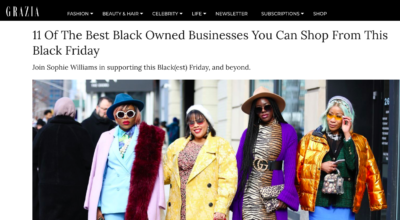I was invited by Maddyness to write a piece about the real state of diversity in leadership in the UK, as part of the publication of my third book, The Glass Cliff.
As well as looking at the Glass Cliff phenomenon, this article sheds light on the Great Breakup, and asks what businesses need to do in order to remain relevant in the modern job market.
Recently, something rather remarkable has been happening, quietly, in the world of work. More women than ever before have made the choice to leave their jobs, on their own terms – a trend that researchers are calling the Great Break-up.
Sophie Williams, writing for Maddyness

I also looked at the most recent figures around both gender and racial representation at the highest levels of UK business, and questioned whether the stories we tell about progress in representation are in line wihtt he realities behind closed doors.
The most recent figures show us that across the entirety of the FTSE 100 companies in the UK, only one has a Black CEO – Dr. Segun Ogunsanya, the leader of Airtel Africa. Whilst this may be seen as progress from the 2021 reporting, which found that not a single Black CEO, chairmen, or CFOs in any of Britain’s 100 largest companies, it still leaves us, in 2024, in a situation where according to Equality Group’s FTSE100 Diversity Data Report, there are six times the number of UK FTSE 100 CEOs called ‘Simon’ than Black CEOs.
Looking beyond the FTSE, government figures tell a very similar story of underrepresentation, estimating that only 0.1% of SMEs in the UK have a Black leader. Very much at odds with the stories of progress around diversity and inclusion that we’re so used to hearing.




